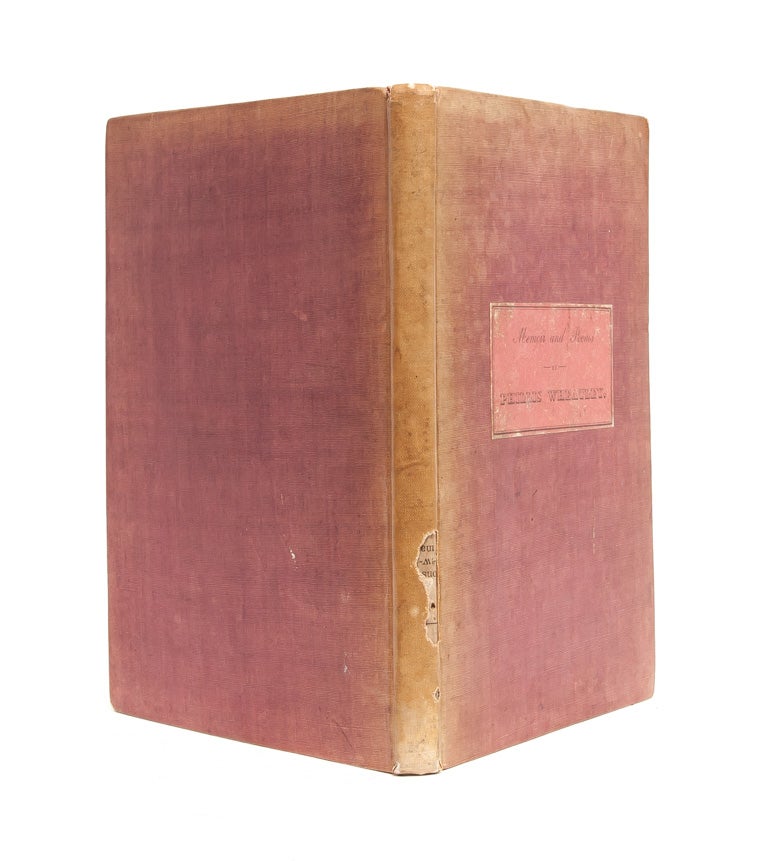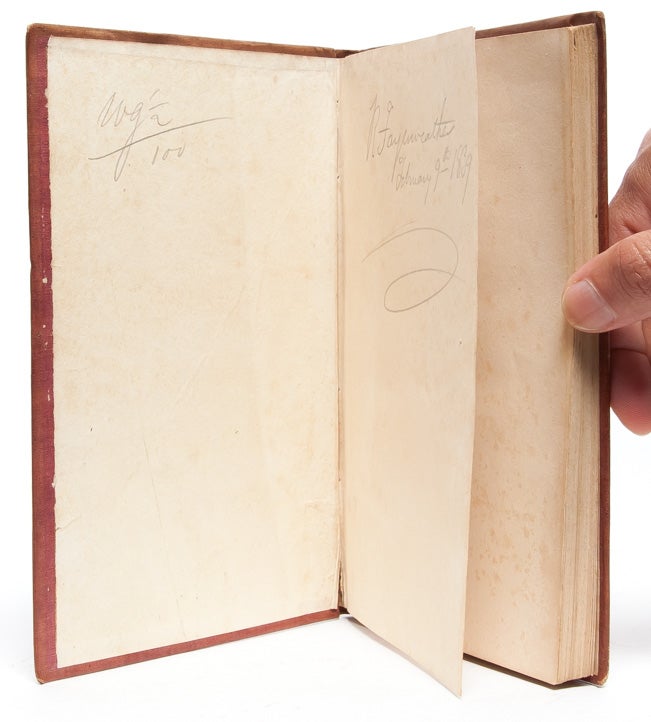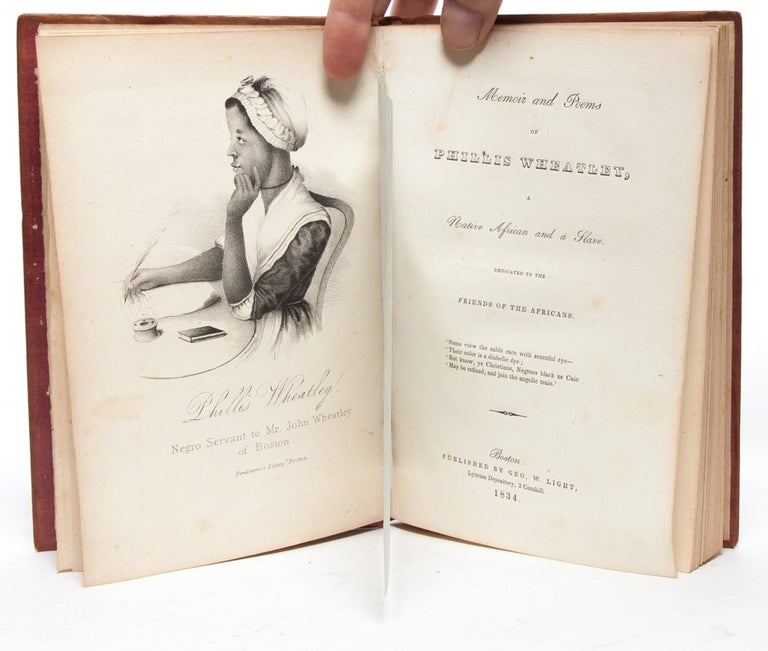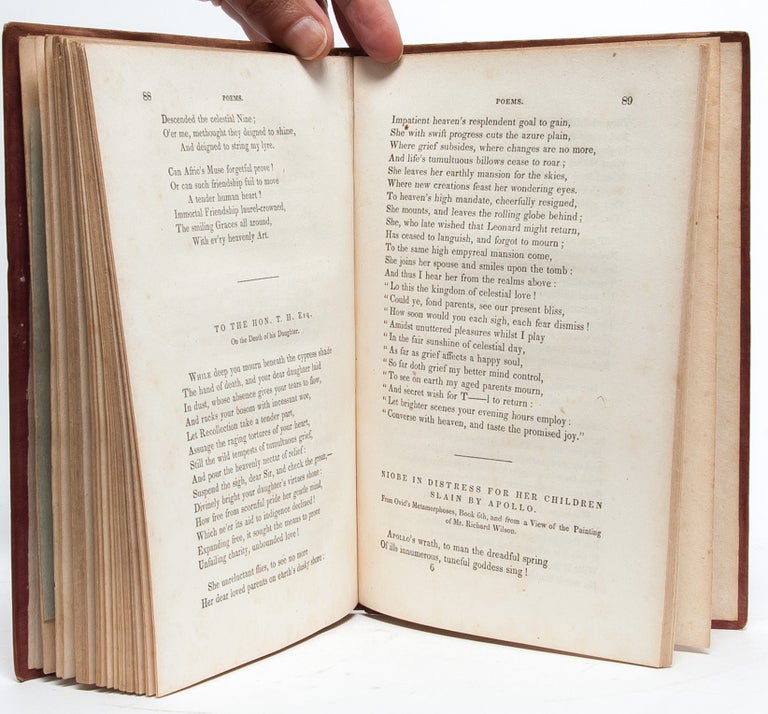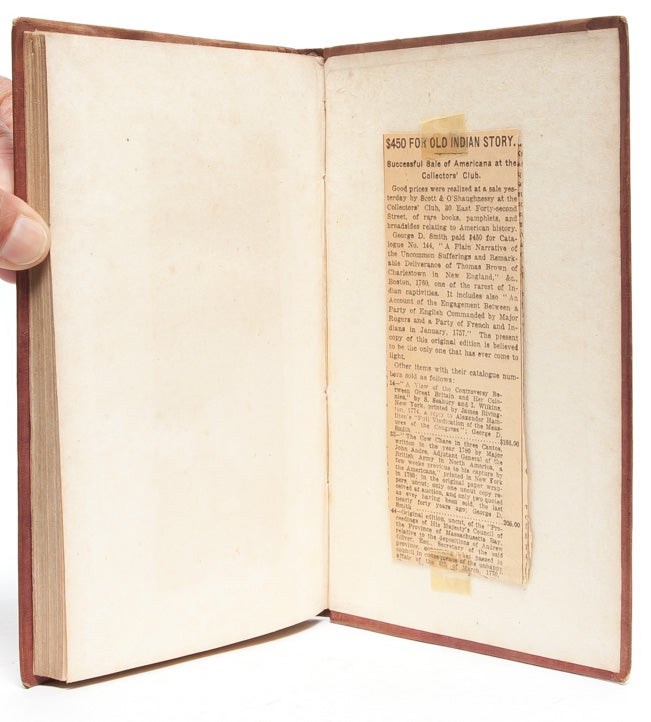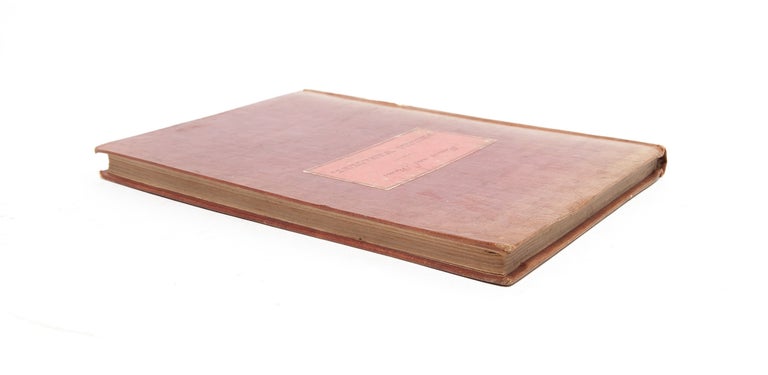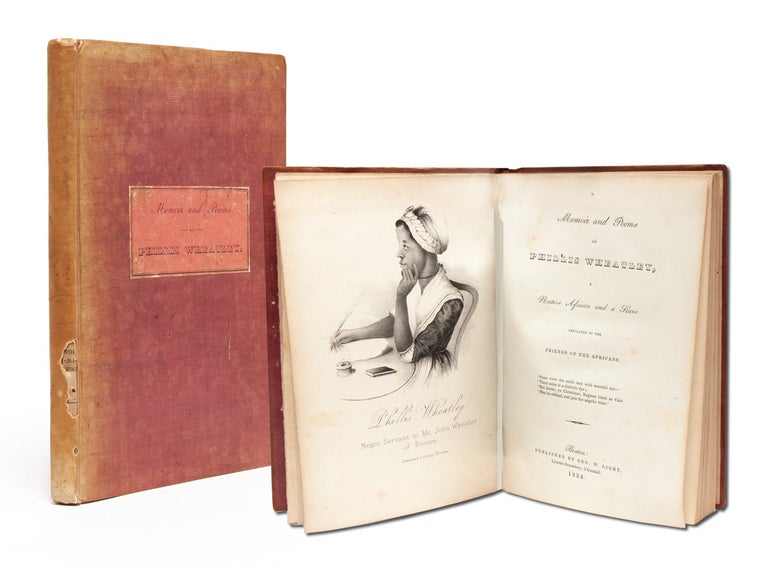Memoir and Poems of Phillis Wheatley, a native African and a slave. Dedicated to the friends of the Africans.
Boston: Geo. W. Light, 1834.
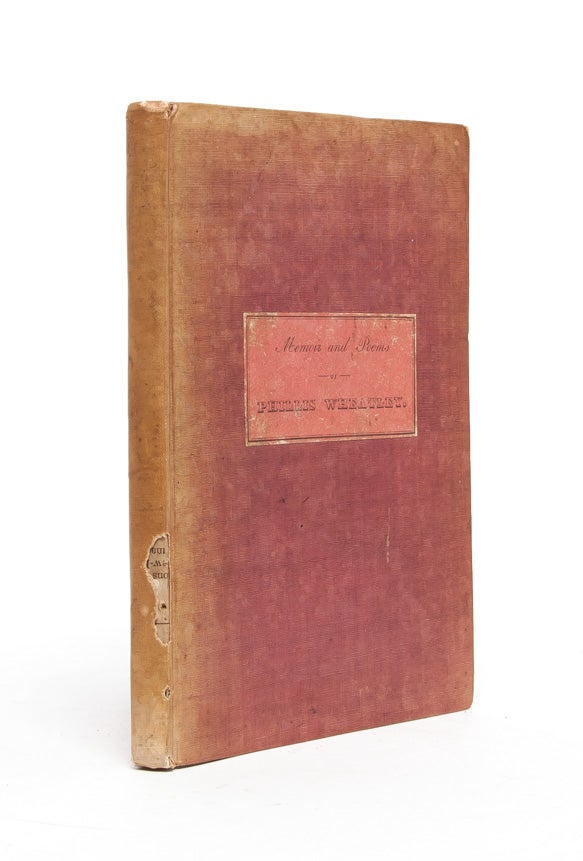

Memoir and Poems of Phillis Wheatley, a native African and a slave. Dedicated to the friends of the Africans.
Boston: Geo. W. Light, 1834. First edition. Original publisher's cloth binding retaining the delicate paper label to front board. Cloth a bit sunned, with a nick causing some loss to the lower spine. Small bump to upper front board. Tight and square. Contemporary ownership signature of "R. Fayeweather. February 9th 1839" in pencil to the front endpaper. Early auction advert taped to rear pastedown. Some light scattered foxing to preliminaries, but internally a surprisingly unmarked and fresh textblock. A complete and fully unsophisticated copy, featuring the frontis portrait of Wheatley after Scipio Moorhead. The first biography of the first African American to publish poetry, the present groundbreaking work has become incredibly scarce. It last sold at auction over 45 years ago in 1974; and the present is the only copy on the market.
Layer upon layer of innovation and collaboration shape this historic biography. Already Phillis Wheatley had made history in 1773 as the first African American to publish a book of poetry and the first Black woman to publish a book. A person living in slavery, she confronted massive racism in the colonies as she sought to release Poems on Various Subjects, ultimately working with abolitionist supporters and a publisher in London to accomplish it. Famed for its exceptionally beautiful verse, the book was also noted for its inclusion of a frontis depicting Wheatley at her desk, after the work of the enslaved Black artist Scipio Moorhead; this piece was "a revolutionary and unprecedented portrait of a Black female writer," defying dehumanizing assumptions about Black people, and presenting Wheatley as a reflective scholar and artist (Lacey).
Yet the literary canon can be a fickle thing, gravitating toward those works that largely reflect the experiences and lives of the privileged. To be memorialized in print by another author could be critical to establishing a writer -- particularly one that seemed an outlier -- as deserving a place in the canon. The present biography is notable for doing this, both in proclaiming the lasting value and importance of Wheatley's work as well as placing it firmly within the larger context of Wheatley's life. "Sketches of the lives of those who have been distinguished for talents and virtues are generally acknowledged to have a happy moral influence," Margaretta Matilda Odell writes in her Introduction," But especially in the case that, when these qualities have raised the individual who possesses them from the humblest walks of life, to the notice and approbation of the wise...Under these impressions we introduce to the reader the subject of the following Memoir, whom we find in the lowest condition of humanity: for she was sold and bought like a beast in the market and in the same land where, shortly after, the people rose in their indignation against oppression and asserted that 'All men are born free and equal.'"
Here, an early American printing of Wheatley's Poems was accompanied by the memoir written by Susanna Wheatley's great grandniece. "Margaretta Matilda Odell's 1834 Memoir and Poems of Phillis Wheatley provides the only substantive early documentation of Wheatley's life; even modern biographers rely almost entirely on Odell's work...In her biography, Odell emphasizes that Wheatley endured the grueling Middle Passage, arriving in Boston on July 11, 1761 aboard the Phillis (from which Wheatley derived her first name)...For Odell, Wheatley's life deserves to be celebrated because it represents the lost potential of millions who never enjoyed opportunity" (Documenting the American South). Indeed, Odell reminds readers throughout that "Phillis Wheatley was...sold as a slave...and was purchased" by fellow humans -- that slavery is a cruel man-made system into which one is force, rather than an identity category in itself. Beyond being enslaved, Wheatley and those like her were individuals with their own minds and talents.
Reinvigorating interest in Wheatley's work, the present title swiftly sparked a copycat biography by Boston lawyer B. B. Thatcher months later (a work that Documenting the American South notes as "relying wholly on Odell's account and consistently plagiarizing from it"). Odell's biography, in its own time, assisted in drawing critical and market focus back onto a poet who opened the door for other marginalized voices to find outlet in print. And it made possible our ability not only to continue reading Wheatley's poetry, but to remember the life from which those verses emerged.
Sabin 103133. Blockson 9689. (Item #3984)

